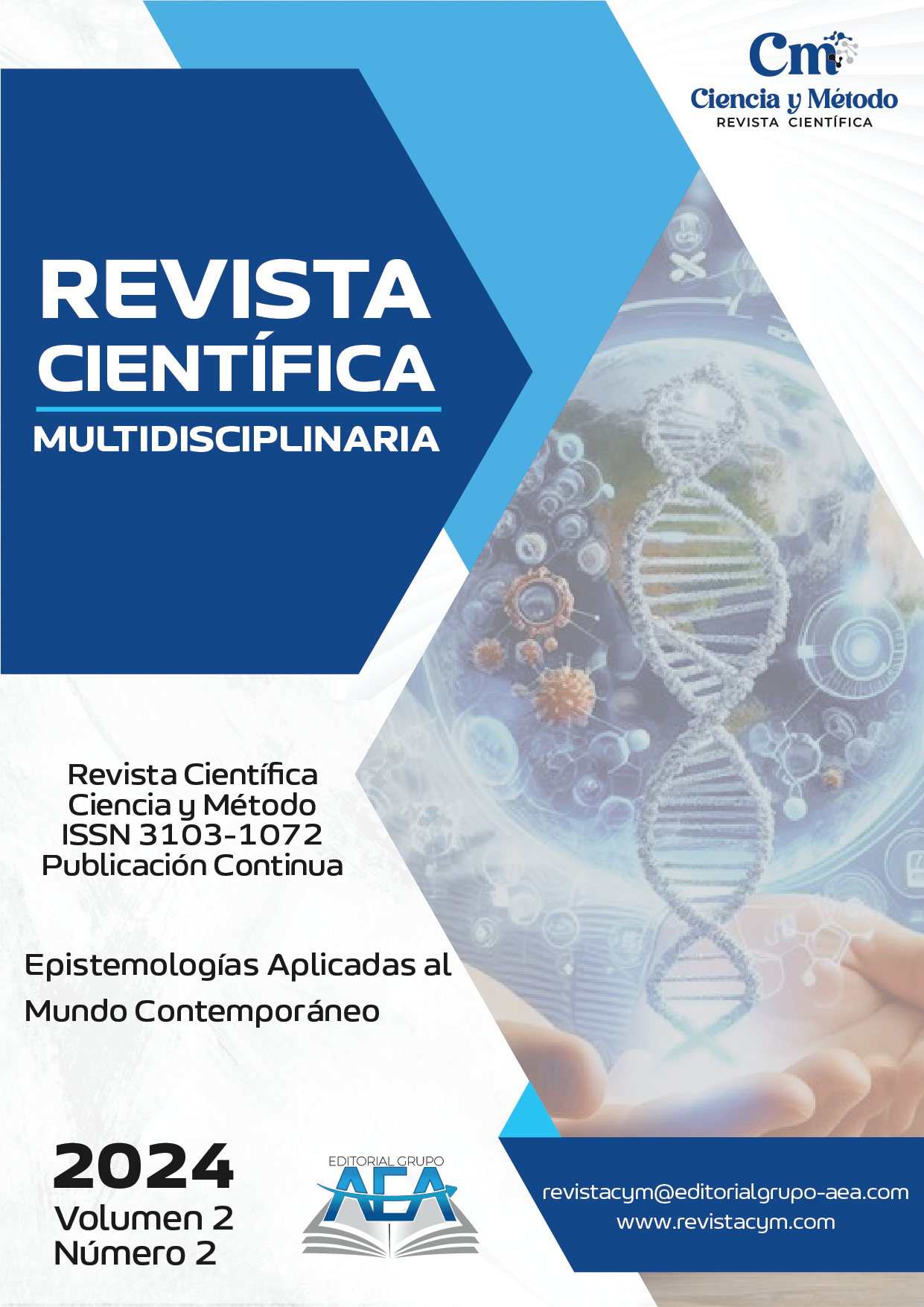Análisis de la influencia de la cultura organizacional en la ética contable
Contenido principal del artículo
Resumen
El presente estudio examina críticamente la influencia de la cultura organizacional sobre la ética contable mediante una revisión bibliográfica sistemática de investigaciones empíricas y teóricas publicadas en las últimas dos décadas. La metodología se basó en la selección rigurosa de literatura indexada en bases de datos de alta calidad, la identificación de categorías temáticas y el análisis comparativo de hallazgos. Los resultados destacan que el predominio de objetivos financieros por encima de valores éticos constituye un factor decisivo que propicia la racionalización de prácticas indebidas, la manipulación contable y la omisión deliberada de información relevante. Asimismo, se identificó que la coherencia entre los valores declarados y las prácticas reales, el liderazgo ético visible, y la existencia de políticas claras y programas de formación continua son elementos determinantes para fortalecer la responsabilidad profesional y fomentar la denuncia de irregularidades. El estudio concluye que la cultura organizacional opera como un componente estructural que condiciona de manera significativa la calidad moral de las decisiones contables. La articulación sinérgica de liderazgo coherente, normas explícitas y educación ética se propone como una estrategia integral indispensable para consolidar entornos de transparencia que refuercen la confianza pública y garanticen la sostenibilidad de la práctica contable
##plugins.themes.bootstrap3.displayStats.downloads##
Detalles del artículo
Sección

Esta obra está bajo una licencia internacional Creative Commons Atribución-NoComercial 4.0.
Cómo citar
Referencias
Almenaba-Guerrero, Y. F., & Herrera-Sánchez, M. J. (2022). Diversidad e Inclusión en el Lugar de Trabajo: Prácticas en Ecuador Liderazgo y Cultura Organizacional. Revista Científica Zambos, 1(1), 69-85. https://doi.org/10.69484/rcz/v1/n1/22 DOI: https://doi.org/10.69484/rcz/v1/n1/22
Bailey, C. D., Scott, I., & Thoma, S. J. (2010). Revitalizing accounting ethics research in the neo-Kohlbergian framework: Putting the DIT into perspective. Behavioral Research in Accounting, 22(2), 1–26. https://doi.org/10.2308/bria.2010.22.2.1 DOI: https://doi.org/10.2308/bria.2010.22.2.1
Bravo-Bravo, I. F., & Herrera-Sánchez, M. J. (2023). Tendencias Globales del Liderazgo Transformacional en Empresas Modernas. Horizon Nexus Journal, 1(2), 14-31. https://doi.org/10.70881/hnj/v1/n2/15 DOI: https://doi.org/10.70881/hnj/v1/n2/15
Cohen, J., Ding, Y., Lesage, C., & Stolowy, H. (2017). Corporate fraud and managers’ behavior: Evidence from the press. Journal of Business Ethics, 146(2), 245–258.
Huhtala, M., Kangas, M., Lämsä, A.-M., & Feldt, T. (2013). Ethical managers in ethical organizations? The leadership–culture connection among Finnish managers. Leadership & Organization Development Journal, 34(3), 250–270. https://doi.org/10.1108/01437731311326684 DOI: https://doi.org/10.1108/01437731311326684
Kaptein, M. (2011). From inaction to external whistleblowing: The influence of the ethical culture of organizations on employee responses to observed wrongdoing. Journal of Business Ethics, 98(3), 513–530. https://doi.org/10.1007/s10551-010-0591-1 DOI: https://doi.org/10.1007/s10551-010-0591-1
Martinov-Bennie, N., & Mladenovic, R. (2015). Investigation of the impact of an ethical framework and an integrated ethics education on accounting students’ ethical sensitivity and judgment. Journal of Business Ethics, 127(1), 189–203. DOI: https://doi.org/10.1007/s10551-013-2007-5
Miceli, M. P., Near, J. P., & Dworkin, T. M. (2008). Whistle-blowing in organizations. New York, NY: Routledge. DOI: https://doi.org/10.4324/9780203809495
Montenegro-Pérez, A. S., Ruiz-Cortez, S. L., Verdezoto-Águila, P. M., Romero-Mera, W. W., & Padilla-Romero, F. A. (2024). Análisis del cumplimiento de obligaciones del Impuesto a la Renta, en las PYMES de Urdaneta. Journal of Economic and Social Science Research, 4(4), 258–277. https://doi.org/10.55813/gaea/jessr/v4/n4/145 DOI: https://doi.org/10.55813/gaea/jessr/v4/n4/145
Navarrete Zambrano, C. M., & Herrera-Sánchez, M. J. (2023). Impacto de la Contabilidad Ambiental en las Empresas del Sector Minero en Ecuador. Revista Científica Zambos, 2(2), 37-49. https://doi.org/10.69484/rcz/v2/n2/42 DOI: https://doi.org/10.69484/rcz/v2/n2/42
Posligua-Chichanda, E. K., Serna-Almachi, S. S., Díaz-Córdova, P. E., & Moreno-Tapia, L. M. (2025). Control interno al área de inventarios y su incidencia en la reducción de costos: PESCHIFSA S.A. Journal of Economic and Social Science Research, 5(1), 330–346. https://doi.org/10.55813/gaea/jessr/v5/n1/179 DOI: https://doi.org/10.55813/gaea/jessr/v5/n1/179
Reymundo-Soto, E., & Navarrete-Zambrano, C. M. (2022). Transparencia y Responsabilidad en el Sector Público: Un Análisis de las Prácticas de Auditoría Gubernamental en Ecuador. Revista Científica Zambos, 1(2), 67-83. https://doi.org/10.69484/rcz/v1/n2/28 DOI: https://doi.org/10.69484/rcz/v1/n2/28
Sánchez-Caguana, D. F., Landázuri-Álvarez, M. B., Ramírez-Martínez, S. L., & Acosta-Muñoz, M. M. (2024). Desarrollo Sostenible y Contabilidad: Integrando la Contabilidad Ambiental en Prácticas Empresariales. Journal of Economic and Social Science Research, 4(2), 157–177. https://doi.org/10.55813/gaea/jessr/v4/n2/105 DOI: https://doi.org/10.55813/gaea/jessr/v4/n2/105
Santander-Salmon, E. S., Herrera-Sánchez, M. J., & Bravo-Bravo, I. F. (2023). La importancia de la digitalización en la administración empresarial mediante un análisis bibliográfico actualizado. Multidisciplinary Collaborative Journal, 1(2), 39-51. https://doi.org/10.70881/mcj/v1/n2/15 DOI: https://doi.org/10.70881/mcj/v1/n2/15
Sweeney, B., & Costello, F. (2009). Moral intensity and ethical decision-making: An empirical examination of undergraduate accounting and business students. Accounting Education: An International Journal, 18(1), 75–97. DOI: https://doi.org/10.1080/09639280802009454
Sweeney, B., Arnold, D., & Pierce, B. (2010). The impact of perceived ethical culture of the firm and demographic variables on auditors’ ethical evaluation and intention to act decisions. Journal of Business Ethics, 93(4), 531–551. https://doi.org/10.1007/s10551-009-0237-3 DOI: https://doi.org/10.1007/s10551-009-0237-3
Treviño, L. K., Weaver, G. R., & Reynolds, S. J. (2006). Behavioral ethics in organizations: A review. Journal of Management, 32(6), 951–990. https://doi.org/10.1177/0149206306294258 DOI: https://doi.org/10.1177/0149206306294258
Valentine, S., & Fleischman, G. (2008). Ethics programs, perceived corporate social responsibility and job satisfaction. Journal of Business Ethics, 77(2), 159–172. https://doi.org/10.1007/s10551-006-9306-z DOI: https://doi.org/10.1007/s10551-006-9306-z
Valentine, S., & Godkin, L. (2019). Moral intensity, ethical decision making, and whistleblowing intention. Journal of Business Research, 98, 277–288. https://doi.org/10.1016/j.jbusres.2019.01.009 DOI: https://doi.org/10.1016/j.jbusres.2019.01.009





